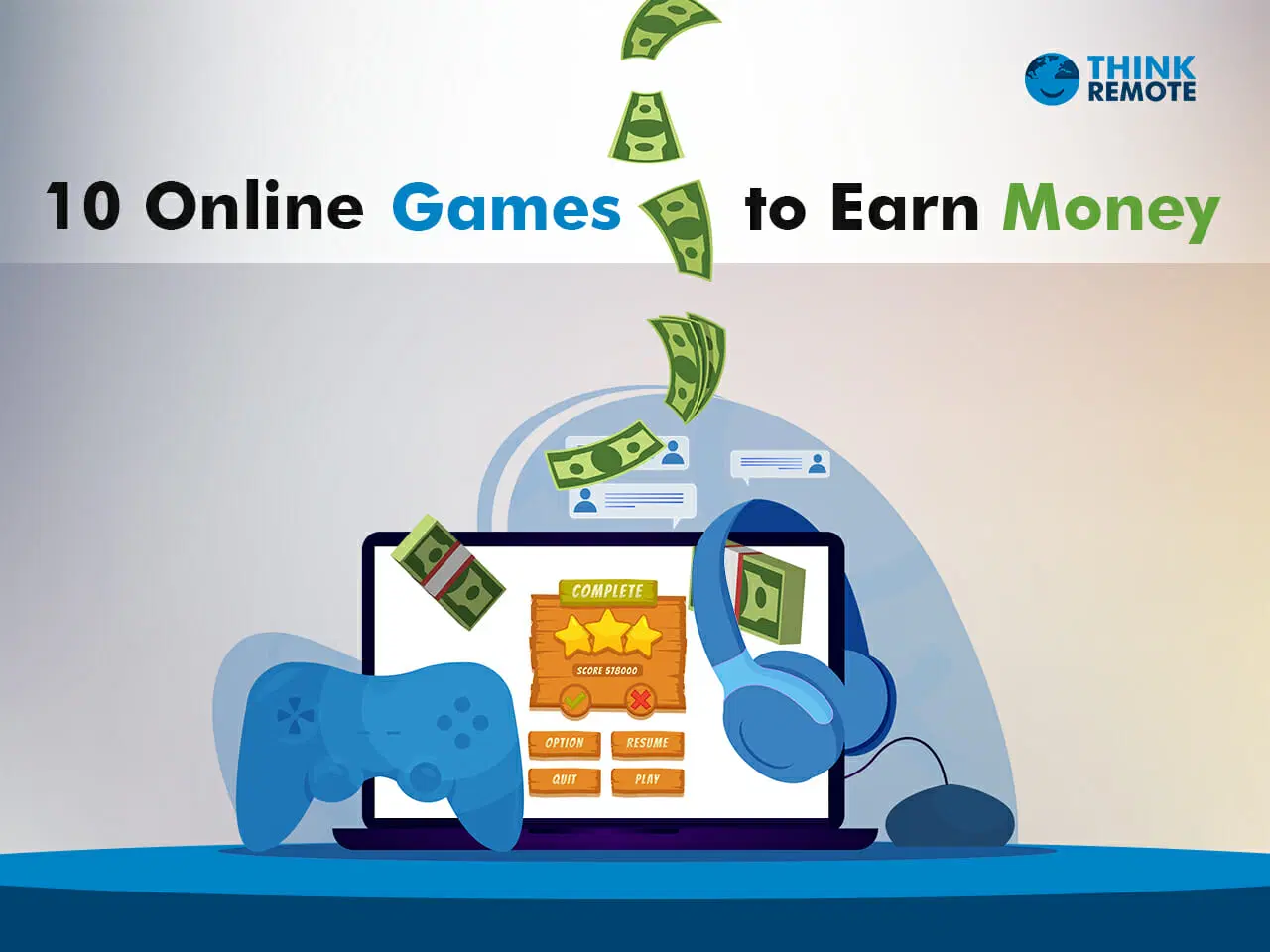The Best Gaming Platform with Rewards for Earning Real Money Online
Wiki Article
Just How Play-to-Earn Gamings Are Reinventing the Pc Gaming Industry

Comprehending Play-to-Earn Mechanics
The play-to-earn design has become a revolutionary concept within the pc gaming market, basically altering the connection between gamers and the games they engage with. This design allows players to earn tangible rewards, typically in the type of cryptocurrencies or non-fungible tokens (NFTs), through their in-game activities. Unlike conventional video gaming frameworks that generally monetize through subscription costs or single acquisitions, play-to-earn games incentivize player participation by straight connecting gameplay accomplishments to real-world value.At the core of play-to-earn mechanics is the assimilation of blockchain technology, which ensures openness and conclusive ownership of in-game assets. Players can acquire, market, or trade these possessions in decentralized markets, empowering them with financial company previously unseen in standard video gaming environments. Each player's payment to the game environment-- be it with experienced play, calculated trading, or neighborhood involvement-- boosts the general gaming experience while giving them a possibility to produce income.
As gamers invest time and sources, they not just deepen their involvement with the video game but additionally promote a dynamic economic situation that shows their collective initiatives (play and earn rewards). This transformation of gameplay right into a monetizable venture is improving both player inspiration and game style
Economic Effect On Gamers

Additionally, play-to-earn models equalize access to financial advantages. Players from differing socio-economic backgrounds can participate and possibly earn considerable income, linking spaces that exist in conventional work markets. This paradigm change promotes economic self-reliance, particularly in areas where employment possibilities may be restricted.
Additionally, the intro of online economies enables gamers to develop wide range with critical investments in in-game properties, which can appreciate with time. This has caused the emergence of a new class of players who approach play-to-earn as a significant income-generating activity, often causing the reinvestment of earnings into the pc gaming community itself. Inevitably, the financial effect on gamers is profound, as they navigate a landscape where recreation and livelihood assemble.
The Duty of Blockchain Technology
What makes blockchain innovation a keystone of play-to-earn games is its ability to supply openness, decentralization, and safety. By using a distributed ledger Make money online gaming system, blockchain ensures that all purchases within the game are recorded in an immutable way, enabling gamers to confirm ownership of in-game possessions without depending on a central authority. This openness cultivates trust fund amongst gamers, as they can individually confirm the deficiency and provenance of electronic things, boosting their worth.In addition, blockchain modern technology encourages gamers via decentralization, allowing them to participate in peer-to-peer transactions. Players are no more confined to in-game economies regulated by programmers; rather, they can trade, offer, or lease their properties freely in open industries. This shift not only increases the total liquidity of electronic possessions but also urges even more significant player involvement, as customers can directly take advantage of their effort and time purchased the game.
Furthermore, blockchain facilitates the development of clever contracts, which automate numerous in-game processes, from incentives circulation to governance mechanisms. play and earn rewards. This advancement decreases the threat of scams and guarantees justice, more solidifying blockchain's important role in the advancement of play-to-earn video gaming
Criticisms and challenges
Regularly, play-to-earn games encounter considerable obstacles and criticisms that can prevent their development and approval within the broader video gaming community. One key issue is the possibility for a speculative bubble, where the worth of in-game assets can rise and fall considerably, bring about economic losses for players. This volatility undermines the security that standard video gaming settings usually offer.Additionally, the assimilation of blockchain modern technology frequently questions regarding ecological sustainability. The energy usage connected with specific blockchain networks has sparked disputes regarding the environmental impact of these games. Critics say that the carbon impact produced by play-to-earn systems can prevent eco-conscious players.
Furthermore, there are issues regarding availability and inclusivity. Several play-to-earn games call for gamers to invest significant upfront resources to obtain needed possessions, developing obstacles for those with minimal financial resources. This model can inadvertently produce a divide between wealthier gamers and those that can not manage to get involved.
Future Fads in Gaming
As the video gaming sector proceeds to evolve, several future fads are arising that promise to reshape the landscape of play-to-earn games and past. One considerable pattern is the raising combination of blockchain modern technology, which improves openness and safety in transactions. This will likely bring about greater count on among players, urging broader adoption of play-to-earn versions.
Furthermore, the rise of non-fungible symbols (NFTs) is set to reinvent electronic possession, allowing players to absolutely have in-game possessions. This change will certainly not only encourage gamers but also develop new economic possibilities within the digital environment. The merging of gaming with various other markets, such as social media and decentralized money (DeFi), is expected to foster ingenious gameplay technicians and monetization strategies.
In addition, improvements in expert system and maker learning will certainly enable much more tailored video gaming experiences, satisfying individual player choices and boosting engagement. Lastly, the expanding focus on community-driven growth will likely affect game style, as players progressively take part in forming their pc gaming settings. Collectively, these patterns show a transformative future for the gaming sector, where play-to-earn designs will certainly play a main role in redefining gamer interaction and worth creation.
Verdict
In conclusion, play-to-earn games represent a considerable change in the pc gaming sector, fostering economic chances through ingenious mechanics that take advantage of blockchain modern technology. This version not just democratizes accessibility to economic benefits for players from various socio-economic backgrounds yet also encourages area engagement and empowerment. In spite of facing criticisms and challenges, the potential for future innovations recommends that play-to-earn video games will continue to form the gaming landscape, using brand-new methods for wealth production and player participation.The emergence of play-to-earn games represents a substantial shift in the gaming market, reshaping the partnership in between players and the electronic economic climate (play and earn rewards).The play-to-earn design has actually arised as an innovative idea within the video gaming market, basically altering the relationship between players and the games they involve with. Unlike conventional pc gaming frameworks that normally generate income from with registration charges or single purchases, play-to-earn games incentivize gamer participation by directly connecting gameplay achievements to real-world worth
These ingenious video gaming systems empower gamers to create real-world revenue through their in-game tasks, thus transforming the standard idea of pc gaming from a simple activity into a practical financial possibility. Despite facing obstacles and objections, the possibility for future innovations suggests that play-to-earn games will proceed to shape the gaming landscape, providing new methods for wealth creation and player involvement.
Report this wiki page